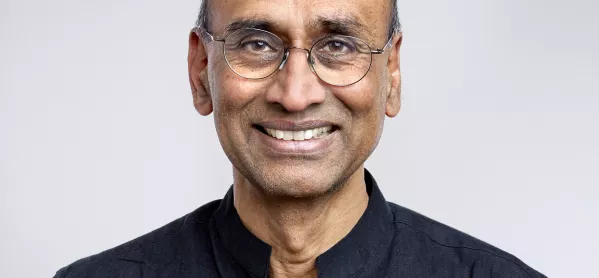Pupils are being put at a disadvantage by A levels, because it is a narrow system that is no longer “fit for purpose”, according to Sir Venki Ramakrishnan, president of the Royal Society.
Britain is at risk of falling behind other nations by holding onto the qualifications, which encourage teenagers to specialise in a small number of subjects, he has warned.
The Nobel Prize-winning biologist called for a major shake-up to allow sixth-formers to study a wide range of academic and vocational subjects.
Fewer A levels taken
In a speech, Sir Venki said that research commissioned by the Royal Society has shown that students are taking fewer A levels, with the average number of A-level qualifications per student now standing at 2.7.
He said: “Students are also taking a narrower mix of subjects, with, for example, more students taking exclusively Stem (science, technology, engineering and maths) subjects, without any learning in other subject areas seen as key for a broader and more flexible skill set.”
Sir Venki added that “this concentration of Stem learning is seeing the size of the pool of young people with good scientific thinking and skills shrink; less young people overall are studying a science at A level.”
“The UK risks falling behind its global competitors as a result of maintaining a narrow, outdated model of post-16 education.”
He added “Our narrow education system, which encourages early specialisation, is no longer fit for purpose in an increasingly interdisciplinary world. Many countries have moved, or are moving, towards a broader and more diverse curriculum in order to equip the next generation with a skill set they will need.”
‘A narrow approach’
The concerns are not confined to science, according to Sir Venki. He said “Young people need to expand their language skills so that they can, in the future, express the complex ideas of their field of study or work.”
“A narrow approach to education is producing students who are entering higher education without the necessary skills required for independent learning and research, or the ability to write and communicate.”
The biologist called for a move to a broader curriculum in the long term. He argued that in the meantime Britain could learn from A-level alternatives such as the International Baccalaureate (IB), which sees sixth-formers studying a wider range of subjects.
He added that there needed to be less “snobbery” around vocational qualifications. Sir Venki said: “Our education system is too focused on producing narrow specialists. It cannot make sense to focus on equipping students only for specialised careers, including becoming academics themselves.”
Sir Venki commented that career paths are changing and “we need to change expectations of what a person’s ‘career’ - or perhaps ‘careers’ is more accurate - will look like.”
While specialists and academics are needed, “businesses need employees with a broad range of skills and experience that can help them to creatively adapt to technology-rich environments.”
Government response
A Department for Education spokesman said: “We have reformed A-levels to create world-class qualifications that prepare young people for higher education and employment. They were developed in consultation with subject experts, higher education institutions and teachers.”
They added: “This year’s results saw more entries in core subjects like maths and increasing entries to the science, technology and engineering subjects. This will help more young people access higher education so they can go on to secure well-paid jobs, compete on the global jobs market and boost the British economy.”
Want to keep up with the latest education news and opinion? Follow Tes on Twitter and Instagram, and like Tes on Facebook




